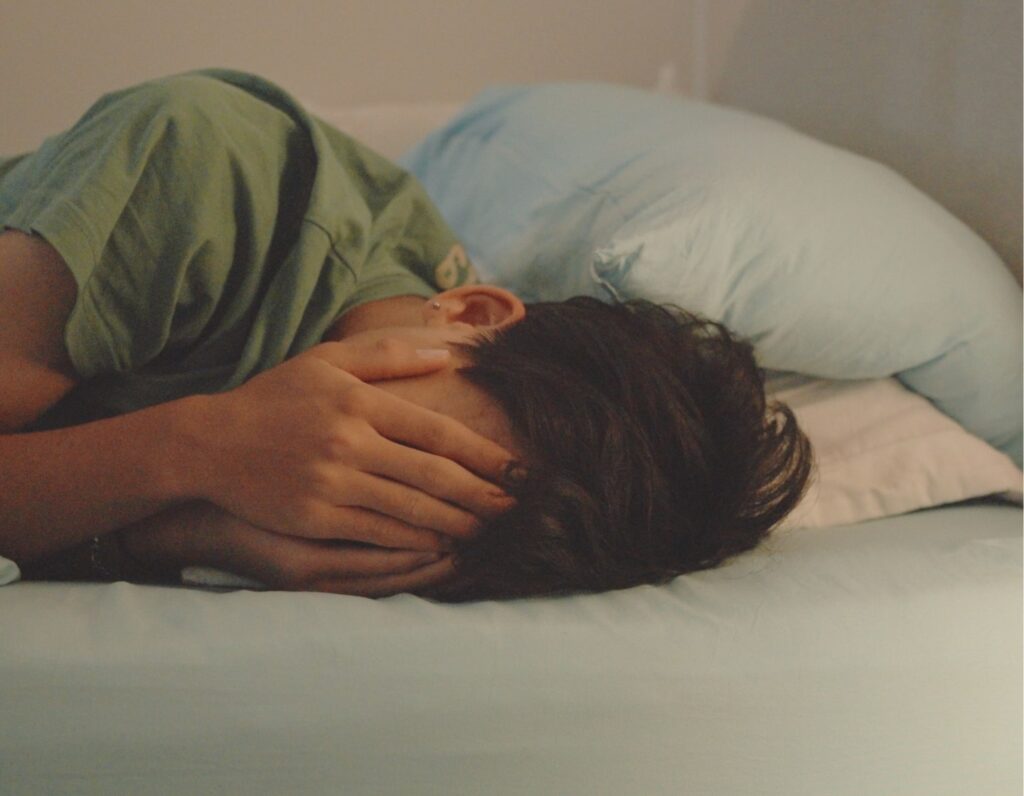
Drug use amongst kids and addiction in Hong Kong – it’s not a pleasant topic but one that you should know about to recognise warning signals if ever you need to. If you suspect that your kids or their friends have a drug problem, here’s what you can do in Hong Kong.
Like most international cities, Hong Kong has a drug problem and it seems to affect the city’s teenagers. Sounds alarmist? Look at these numbers. In the first quarter of this year, 62% of those arrested for drug offences were under the age of 21 years. Youth support organisation, KELY, has shared that 33% of the reported drug abusers in Hong Kong claimed to have started drug abuse at the age between 12 and 15 years, and 18% between 16 and 17 years. So, the big question is – could this be an issue for your family? We spoke with parents, schools, and recognised substance abuse NGOs, CDAC and KELY, to understand the extent of drug use in Hong Kong.
Read More: How To Talk To Your Teen – 9 Effective Communication Tips

The Prevalence Of Drugs In Hong Kong
First, the hard cold facts. The number of reported drug users in our city rose by 3% in 2023, but in what will be a relief to parents, the number of reported young drug abusers aged under 21 declined by 11%. Cocaine, cannabis (weed) and ketamine (commonly known as “K”) remained as the three most common types of drugs abused among young drug users aged under 21. The popularity of drugs depends on many things including affordability and “drug trends” in Hong Kong which changes quickly, varying from “softer” to “harder” types. Other than the choice of drug itself, what’s changed is the access to drugs in Hong Kong.
You may not realise just how easy it is to indulge in recreational (or serious) drug use in Hong Kong. Teens can easily find drugs via apps, the internet or peers. Sellers have changed from triad controlled gangsters and tend to be your average young adult looking to make some quick cash. Your kids’ gadgets can make monitoring and controlling their activities difficult.
It’s not all doom and gloom though. Last year, the total number of arrested drug abusers in Hong Kong was 3,406 (0.04% of the population). It’s a relatively small number and so, as a city, most of our young people are in a good place, but we need to do better to reach those at risk and those already using.
Read More: Raising Resilient Hong Kong Kids By Teaching Them Happiness

Preventing Drug Use In Kids: The First Step
First, find out what your kids know (it’s probably more than you might think). There are two parenting styles: those who practice abstinence from alcohol and drugs, expecting the same from their kids, and those who are more flexible on the matter, trusting their children to make informed decisions. Either way, be the adult who provides information without criticism.
The “because I said so” approach never really works. Instead, sit down and discuss things calmly without lecturing. Children are more likely to talk to you and relate to you when they feel heard. Ask questions and try to understand your child. Create a space in which your child can share the truth without hiding important information from you.
How To Talk To Your Kids About Drugs
- Be brave, open and build a trusting relationship: Talking about difficult issues is a normal part of parenting. Approach these discussions proactively and confidently and always have 2-way conversations. Let your kids know they can be honest with you without fear of judgment or punishment.
- Attend workshops: KELY runs workshops for parents and young people, offering a resource bank developed by young people.
- Employee wellbeing programmes: Check if your company partners with NGOs for drug education. This can be a less intimidating way to get started with getting some more information around drugs and addiction.
- Teach healthy coping mechanisms: Role model healthy behaviours and use resources available from your child’s school, KELY and mental health organisations.
- Be observant:Pay attention to changes in behaviour, friendships and life patterns. If you notice something concerning, keep calm and be open as you talk to your child.
- Seek counselling: When needed, seek professional help, particularly the services specialised on drug addiction. You can easily find the service information in Narcotics Division website.
Read More: Best Child Psychologists, Therapists And Counsellors In Hong Kong

Drug Use: What’s Happening In Hong Kong Schools?
The government funds drug education through fundings such as Beat Drugs Fund (BDF). However, some schools, particularly top band schools, prefer not to label these programmes as “anti-drug” ones. David Ng, Executive Director of the CDAC, finds,
Some schools do not believe that their students have need (of drug education). However, the fact is that some of their students have recreational drug use (habits), and some use stimulant drugs to cope with stress in study. These are all addictive and harmful substances.
Find out what your child’s school is currently offering in terms of drug education and counselling, both via formally trained counsellors and through peer-to-peer support. If you find the programme lacking, you could consider taking a proactive role and proposing the service (with the help of KELY or the CDAC). Schools may be more receptive to parent-initiated drug education programmes.
Drug Use: Why Are Kids Drawn To Drugs
For a parent who has been sheltered or never walked on the wild side, it might be difficult to understand why some kids are doing drugs. If you suspect your child might be taking drugs, you will of course want to know why. The Central Registry of Drug Abuse found that 63% of teens turn to drugs and alcohol to relieve boredom, depression or stress. Peer pressure, social acceptance and curiosity are the other major reasons. Typically, even if the reason seems to be something “light” like boredom, there will be an underlying factor (like stress or loneliness) that needs your attention.
Mental health specialist and family therapist, Sonia Samtani says,
Hong Kong has improved in talking about mental health, but still, discussing addiction remains taboo. It’s about supporting young people before they engage in risky behaviours. If later down the road drug use occurs, we want young people to feel there are answers and (judgement free) support. The last thing we want is young people being shunned or shamed into deeper drug use because they can’t access help.
Read More: What’s Causing Our Teens Anxiety & Upsetting Their Mental Health

Drug Use: My Child Has Been Found With Drugs, What Next?
First, keep calm. If this happened at school – it’ll considered a “risky behaviour” and will be reported to the school social worker. Help is then put in place starting with counselling which is voluntary (only if the drug is not found by or reported to the police and the case is not criminal). The authorities will be called in more serious cases. Most likely, you’ll never have to deal with these stresses and the best way to avoid problems with substances is to get ahead of the issue. Get some additional advice and support without judgement by chatting to a relevant organisation – both KELY and CDAC provide free, confidential advice to parents looking to understand what could happen if their child gets involved with drugs.
Addiction statistics are scary for parents but the overall future outlook is positive if the right approach is taken. We know that lecturing kids doesn’t work, so what should you do? The CDAC cautions that shunning and shaming a person will not work as social acceptance is a big, foundational factor when it comes to drug use. The need to be accepted could be from parents, school, peers and the society, or it could even be personal acceptance of academic performance, traits, sexual orientation, etc. Keep that in mind and be gentle, firm, consistent and fair in your love and acceptance of your child, and while talking about drugs to your children or dealing with drug use.
How Your Kids Can Make A Difference
Your kids could be role models. “Peer-to-peer support is one of the most effective ways to reach young people,” says Sky Siu, Executive Director at KELY Support Group.
Teens are usually eager to selectively engage in voluntary work because it looks great on a college application. But they shy away from being a positive ambassador for drug education. There’s an opportunity to change the narrative here. After an open conversation with your teens, encourage them to look at volunteering opportunities as well as summer internships that deal with drug use and abuse. Reassure them that getting involved doesn’t taint them, and it might just help with those university applications.
Read More: Summer Internships And Jobs 2024 – Part-Time, Volunteer And Remote Work For Teens
Editor’s Note: This post was originally published by Janani Satyajit in May 2018 and updated by Sarah Keates in June 2024.
 View All
View All


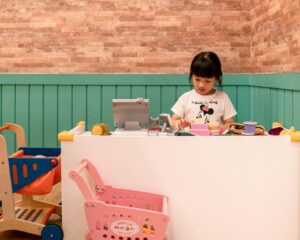




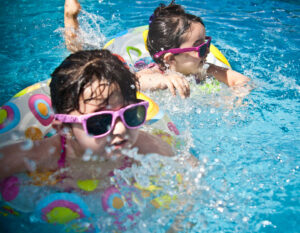
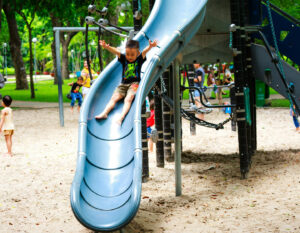
 View All
View All
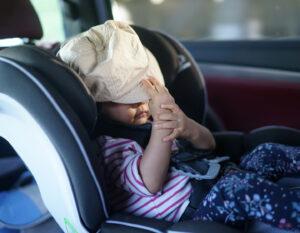



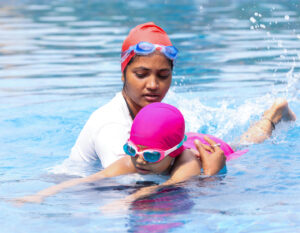
 View All
View All


 View All
View All













